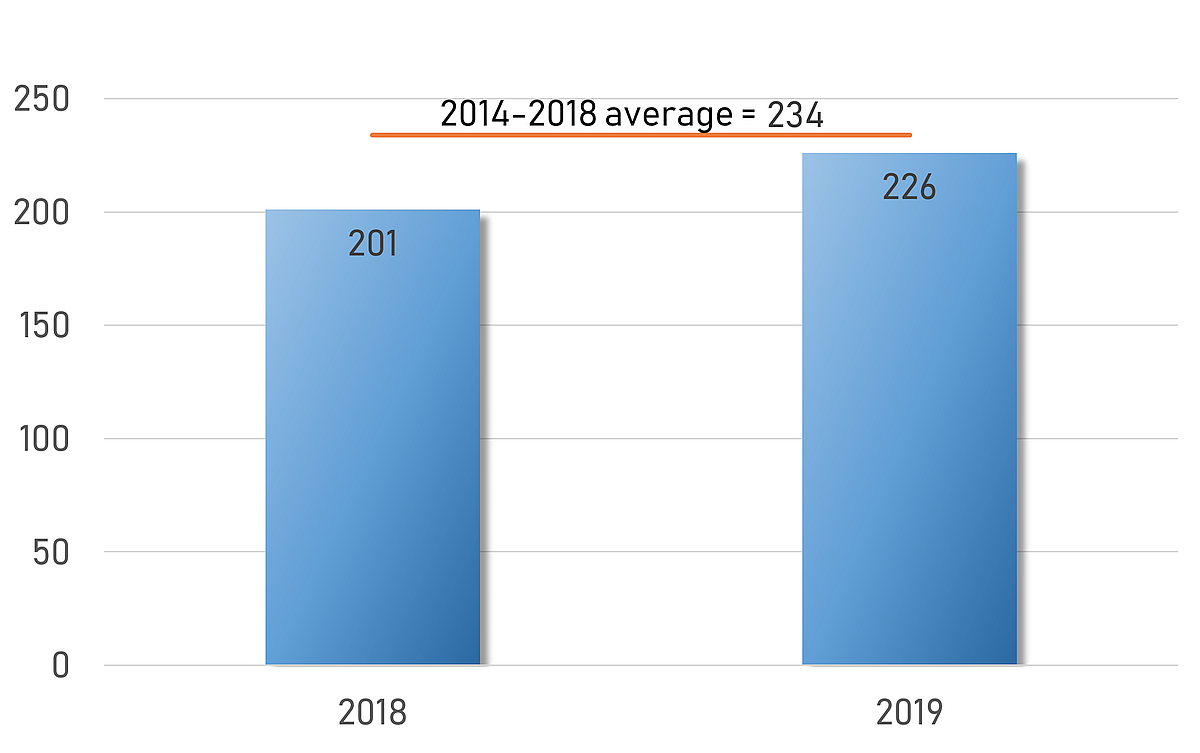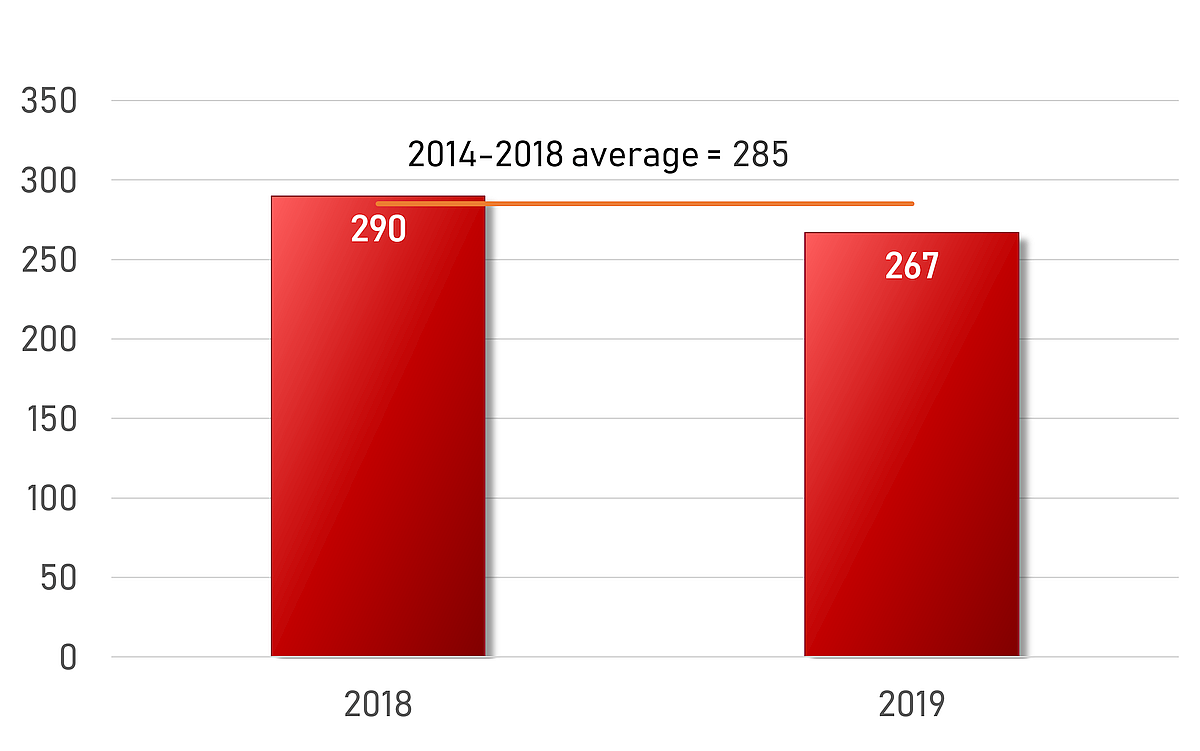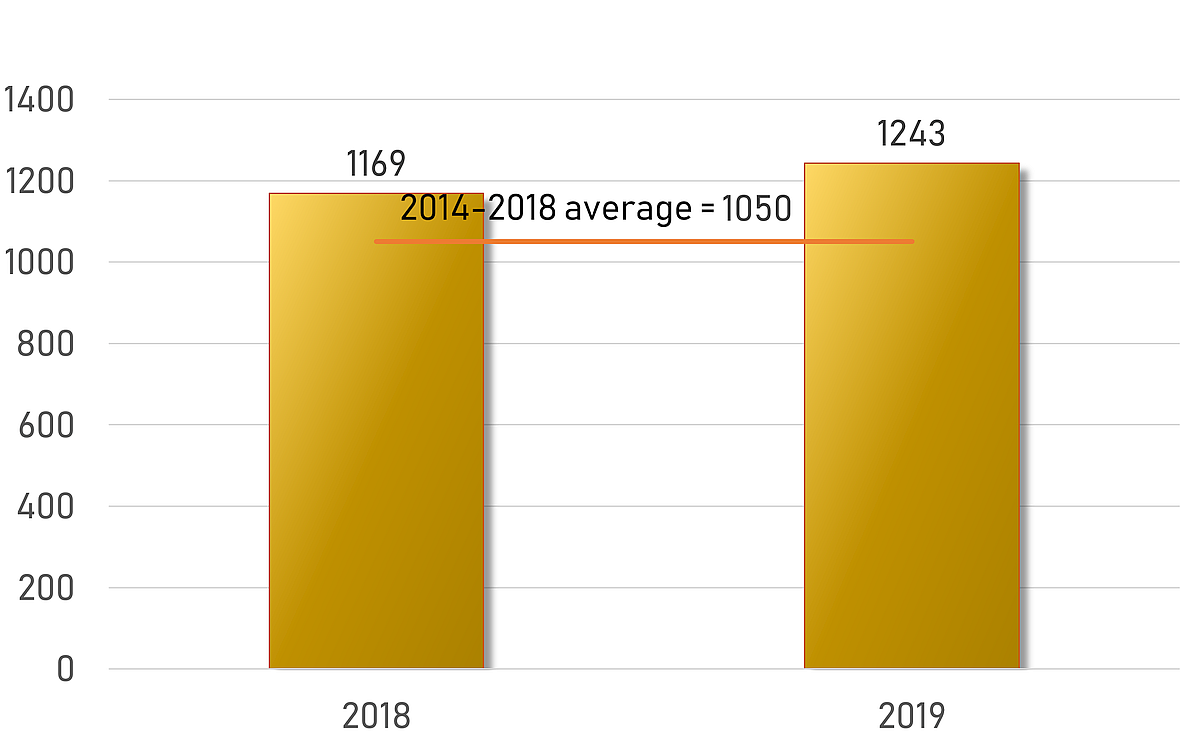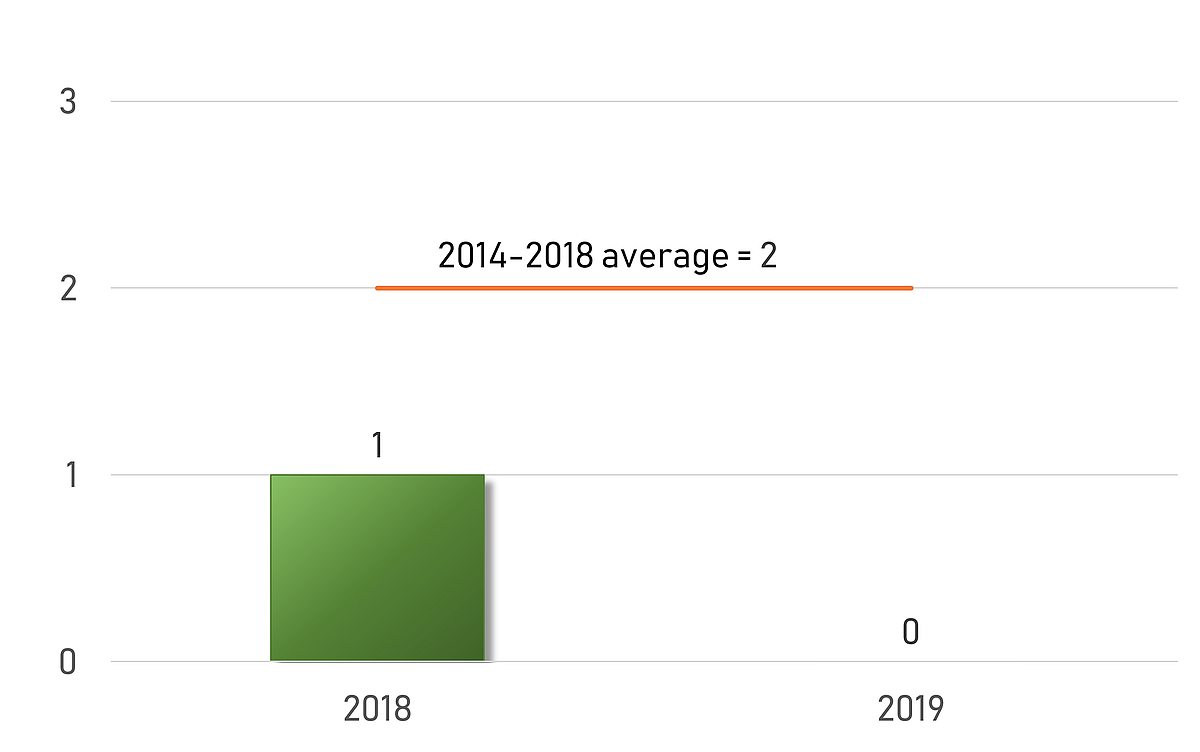TSB releases preliminary 2019 transportation occurrence statistics
The Transportation Safety Board of Canada (TSB) today released its preliminary transportation occurrence statistics for 2019. An initial review of the preliminary occurrence information makes some noteworthy observations. The TSB will release its complete and final statistical reports for 2019 in the spring; these will include accident rates and a more thorough analysis of the updated data (which may vary slightly from this preliminary data).
Air transportation
Air transportation data for 2019 show mixed results. The number of aviation accidents (226) reported to the TSB in 2019 was slightly lower than the 5-year average of 234. However, fatal accidents increased to 32 with 67 fatalities in 2019, compared with 23 fatal accidents and 38 fatalities in 2018. Also, commercial operator accidents increased to 83 in 2019 from 66 in 2018.
Data table
| Year | 2018 | 2019 |
|---|---|---|
| Accidents | 201 | 226 |
| 5-year average | 234 | 234 |
There were 905 aviation incidents reported to the TSB in 2019. This number represents an increase from the previous year (860) and from the 5-year average of 832.
View the December 2019 air transportation occurrence statistics
Marine transportation
There were 267 marine accidents reported to the TSB in 2019, below the 2018 total of 290 and below the 5-year average of 285. Although the number of fishing vessels involved in accidents was lower than the previous year, 6 of the 11 fatal marine accidents and 10 of the 17 marine fatalities were related to the commercial fishing industry. Commercial fishing safety has been on the TSB Watchlist since its inception in 2010. Clearly, more still needs to be done to improve safety in this industry.
Data table
| Year | 2018 | 2019 |
|---|---|---|
| Accidents | 290 | 267 |
| 5-year average | 285 | 285 |
Some 946 marine incidents were reported to the TSB in 2019. This number represents a 2% increase from 2018 and a 17% increase from the 5-year average of 808. Most (84%) reportable incidents were categorized as “Total failure of machinery or technical system.”
View the December 2019 marine transportation occurrence statistics
Railway transportation
Overall, 1243 railway accidents were reported to the TSB in 2019, which is an 18% increase from the 5-year average of 1050.
There were 72 rail-related fatalities reported in 2019, 15 more than the previous year and well above the 5-year average of 60. Among the 2019 fatalities, 38 involved trespassers, compared with 34 in 2018 and the 5-year average of 39. Crossing accident fatalities increased substantially in 2019 (28) from 2018 (19) and from the 5-year average (19). To better understand these data, the TSB will examine underlying factors for crossing accidents.
Among all railway accidents reported to the TSB in 2019, 168 involved dangerous goods (DG). This number was up from 125 in 2018 and up as well from the 5-year average of 122. Nine accidents in 2019 resulted in a DG release.
There were 56 accidents involving an uncontrolled movement and 16 incidents characterized as “Uncontrolled movement of rolling stock” in 2019, compared with 47 and 15 respectively in 2018 and the 5-year averages of 42 and 13 respectively.
Data table
| Year | 2018 | 2019 |
|---|---|---|
| Accidents | 1169 | 1243 |
| 5-year average | 1050 | 1050 |
There were 236 railway incidents reported to the TSB in 2019, a 17% decrease from 2018 (286) and a 26% decrease from the 5-year average (321). This decrease is partly due to a change from volume-based to outcome-based criteria for incidents categorized as “DG leaker,” resulting in the re-categorization of a number of occurrences. Consequently, the number of “DG leaker” incidents between June 2016 and December 2019 fell from 78 to 0. More than half (134) of all railway incidents in 2019 were categorized as “Movement exceeds limits of authority” incidents—4 fewer than in 2018 and equivalent to the 5‑year average of 133.
View the December 2019 rail transportation occurrence statistics
Pipeline transportation
There were no pipeline accidents in 2019. There were 47 pipeline incidents, for a total of 47 pipeline occurrences reported to the TSB in 2019, well below the total of 110 in 2018 and the 5-year average of 111. The number of pipeline occurrences involving a release of product was substantially lower in 2019 than in previous years (20 in 2019 compared with 41 in 2018 and the 5-year average of 62). Sixteen of the 20 occurrences in the “Product released” category in 2019 involved a release of hydrocarbon gas.
Data table
| Year | 2018 | 2019 |
|---|---|---|
| Accidents | 1 | 0 |
| 5-year average | 2 | 2 |
Twenty-six percent of pipeline incidents involved geotechnical/hydrotechnical/ environmental activity in 2019, compared with 40% in 2018 and the 5-year average of 12%.
View the December 2019 pipeline transportation occurrence statistics
The TSB is an independent agency that investigates air, marine, pipeline, and rail transportation occurrences. Its sole aim is the advancement of transportation safety. It is not the function of the Board to assign fault or determine civil or criminal liability.
For more information, contact:
Transportation Safety Board of Canada
Media Relations
Telephone: 819-360-4376
Email: media@tsb.gc.ca



